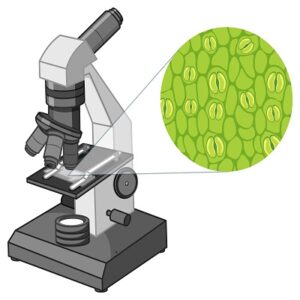MRSA Testing Market Introduction :
The MRSA Testing Market refers to the global industry focused on the development, production, and distribution of diagnostic tests specifically designed to detect Methicillin-Resistant Staphylococcus Aureus (MRSA), a type of bacteria resistant to many antibiotics. These tests are critical for early detection, accurate diagnosis, and effective management of MRSA infections, which are particularly challenging to treat due to their resistance to common antibiotics.
The MRSA Testing Market has been gaining significant attention due to the rising prevalence of MRSA infections worldwide. This market includes various diagnostic methods such as culture-based tests, polymerase chain reaction (PCR) assays, and rapid molecular tests. With healthcare systems increasingly focusing on infection control and patient safety, the demand for accurate and efficient MRSA testing is on the rise.
Technological advancements in diagnostic tools, such as the integration of AI and machine learning, have further enhanced the accuracy and speed of MRSA detection. This has led to early intervention and better patient outcomes. Additionally, the growing awareness of antimicrobial resistance has fueled investments in MRSA testing technologies, with key players in the market striving to develop more innovative and cost-effective solutions.
Get a Sample Copy of the Report to Know More: https://medicalmarketreport.com/report/global-mrsa-testing-market/#requestForSample
Key Takeaways:
- Increasing Prevalence of MRSA Infections:
The rise in MRSA infections, particularly in hospitals and healthcare settings, has created a significant demand for efficient testing solutions. As these infections are resistant to many antibiotics, early detection is critical for effective treatment and infection control.
- Technological Advancements in Testing Methods:
The market is witnessing a surge in innovation, with new diagnostic technologies being developed to enhance the accuracy, speed, and convenience of MRSA testing. Rapid molecular tests and PCR-based assays are becoming more common, offering quicker results compared to traditional culture methods.
- Growing Awareness of Antimicrobial Resistance:
As awareness about antimicrobial resistance (AMR) grows, there is an increasing emphasis on the need for robust MRSA testing. This awareness is driving both public and private investments in the development of advanced testing solutions to combat the spread of resistant bacteria.
- Shift Towards Point-of-Care Testing:
There is a noticeable shift towards point-of-care (POC) testing, which allows for faster diagnosis and treatment decisions. POC testing for MRSA is particularly valuable in healthcare settings, where timely interventions can prevent the spread of infections.
- Regulatory Support and Guidelines:
Regulatory bodies across the globe are introducing guidelines and policies to encourage the adoption of MRSA testing. This regulatory support is helping to standardize testing practices and ensure that accurate and reliable tests are available to healthcare providers.
- Market Expansion in Emerging Economies:
The MRSA Testing Market is not just growing in developed countries; emerging economies are also witnessing an increase in demand. Improved healthcare infrastructure, rising healthcare spending, and greater awareness of MRSA are contributing to market expansion in these regions.
Key Segmentation Analysis:
By Test Type:
- Traditional Culture-Based Tests: These are widely used in hospitals for confirming MRSA infections, although they are slower, taking 24-48 hours for results.
- Molecular Tests: Including PCR-based assays, these tests provide faster and more accurate results, making them increasingly popular in clinical settings.
- Rapid Diagnostic Tests: These tests offer quick results within hours, allowing for immediate clinical decisions, and are particularly valuable in emergency situations.
By Application:
- Hospital Laboratories: Major users of MRSA testing due to the need for infection control and patient safety within healthcare facilities.
- Diagnostic Centers: These centers are growing in importance as they offer specialized MRSA testing services to a broader population.
- Academic and Research Institutes: These entities focus on studying MRSA trends, developing new testing methods, and contributing to ongoing research in antimicrobial resistance.
By End User:
- Hospitals and Clinics: The largest segment, driven by the high incidence of MRSA infections in healthcare settings.
- Ambulatory Surgical Centers (ASCs): Growing in demand for MRSA testing as they increasingly perform complex procedures requiring strict infection control.
- Home Care Settings: Emerging as a segment due to the rise in at-home testing kits, which provide convenient and timely results for patients.
By Region:
- North America: Leading the market with advanced healthcare infrastructure and high awareness of antimicrobial resistance.
- Europe: Significant growth due to stringent regulations and widespread adoption of advanced MRSA testing technologies.
- Asia-Pacific: Rapid market expansion driven by improving healthcare systems, rising MRSA cases, and increasing adoption of new diagnostic methods.
- Rest of the World: Growing demand for MRSA testing due to increasing healthcare investments and the spread of antibiotic-resistant infections.
Driver:
One of the primary drivers of the MRSA Testing Market is the increasing prevalence of healthcare-associated infections (HAIs), particularly in hospital settings. MRSA, being a significant contributor to these infections, demands rigorous testing and monitoring to prevent outbreaks. The rising awareness of antimicrobial resistance (AMR) has also fueled the demand for more efficient and accurate MRSA testing solutions. Governments and healthcare organizations are investing in advanced diagnostic tools to curb the spread of MRSA, further driving market growth.
Trend:
A prominent trend in the MRSA Testing Market is the shift towards rapid and point-of-care (POC) testing. Traditional culture-based tests, which take 24-48 hours for results, are being increasingly replaced by faster molecular and rapid diagnostic tests. These newer methods provide results within hours, enabling quicker clinical decisions and more effective patient management. Additionally, the integration of artificial intelligence (AI) and machine learning in diagnostic tools is enhancing the accuracy and efficiency of MRSA detection, setting a new standard for the industry.
Restraint:
Despite the advancements in MRSA testing technologies, the market faces certain restraints. One significant challenge is the high cost of advanced molecular and rapid diagnostic tests, which can be a barrier for widespread adoption, especially in developing regions. Additionally, the lack of standardization in testing methods across different regions can lead to variability in test results, impacting the reliability and consistency of MRSA detection.
Opportunity:
The MRSA Testing Market presents significant opportunities, particularly in emerging economies where healthcare infrastructure is rapidly improving. As awareness of AMR and the importance of infection control grows in these regions, there is a rising demand for affordable and accessible MRSA testing solutions. Companies that can develop cost-effective, reliable, and easy-to-use testing methods stand to gain a substantial market share. Furthermore, the ongoing research and development in rapid testing technologies and AI integration offer potential for future growth and innovation in the market.
Regional Analysis :
North America:
- Market Leader: North America holds the largest share of the MRSA Testing Market due to its advanced healthcare infrastructure and high prevalence of MRSA infections.
- Key Drivers: Strong regulatory frameworks, high healthcare spending, and significant investments in research and development drive market growth.
- Trends: High adoption of rapid and molecular diagnostic tests, and increased focus on combating antimicrobial resistance (AMR).
Europe:
- Growing Market: Europe is experiencing steady growth, supported by stringent regulations and widespread use of advanced diagnostic technologies.
- Key Drivers: The European Union’s emphasis on infection control and healthcare quality improvements boost the demand for MRSA testing.
- Trends: Increasing implementation of point-of-care testing and innovations in diagnostic tools are prevalent.
Asia-Pacific:
- Rapid Expansion: The Asia-Pacific region is witnessing significant market growth due to improving healthcare infrastructure and rising incidence of MRSA infections.
- Key Drivers: Growing awareness of AMR, increasing healthcare investments, and expanding healthcare facilities contribute to market growth.
- Trends: Rising adoption of cost-effective testing solutions and advancements in diagnostic technology.
Rest of the World:
- Emerging Market: The Rest of the World, including regions like Latin America and the Middle East, is experiencing growing demand for MRSA testing.
- Key Drivers: Enhanced healthcare infrastructure and increased focus on infection control practices are key growth factors.
- Trends: Expansion of healthcare services and increased availability of MRSA testing technologies are notable trends.
Kay Players Analysis :
In the MRSA Testing Market, several key players are making significant impacts. Home Instead Inc. focuses on providing home-based care, which increasingly includes MRSA testing to enhance infection control in home settings. Amedisys Inc. operates home health care services and is integrating advanced MRSA testing to improve patient outcomes. Kindred Healthcare LLC is known for its comprehensive healthcare services, including specialized MRSA testing in its facilities to manage infections effectively. Seymour Health emphasizes infection control in its healthcare facilities and is adopting advanced MRSA testing solutions to safeguard patient health. Senior Care Centers of America Inc. integrates MRSA testing as part of its extensive senior care services to prevent and control infections in elderly populations. Collectively, these players drive innovation and adoption of MRSA testing technologies, aiming to improve patient safety and infection management across various healthcare settings.
- Home Instead Inc.
- Amedisys Inc.
- Kindred Healthcare LLC
- Seymour Health
- SENIOR CARE CENTERS OF AMERICA INC
- Other Key Players
If You Have Any Questions About This Report, Please Reach Out to Us https://medicalmarketreport.com/report/global-mrsa-testing-market/#inquiry
Conclusion
In conclusion, the MRSA Testing Market is evolving rapidly due to the increasing prevalence of MRSA infections and the need for effective infection control. Technological advancements, such as rapid and molecular tests, are driving growth and improving diagnostic accuracy. While high costs and variability in testing methods pose challenges, opportunities exist in emerging markets and through innovative, cost-effective solutions. Key players like Home Instead Inc., Amedisys Inc., and others are enhancing their services by integrating advanced MRSA testing. Overall, the market is set to expand as healthcare systems worldwide focus on better infection management and patient safety.
Contact us
Market.us (Powered By Prudour Pvt. Ltd.)
Address: 420 Lexington Avenue, Suite 300,
New York City, NY 10170, United States
Tel: +1 718 618 4351
Email:[email protected]



